The Syrian quagmire looms over President Donald Trump and his Turkish counterpart Recep Tayyip Erdoğan as they prepare to meet Tuesday in Washington.
The leaders have conflicting priorities. Trump is focused on defeating the Islamic State (ISIS) and capturing Raqqa. With this in mind, he has authorized scaling up military cooperation with Syrian Kurdish groups. This frustrates Erdoğan, who is determined to prevent the Syrian Kurds from expanding their influence in northern Syria along the Turkish border. Syrian Kurds are closely affiliated with the Kurdistan Workers’ Party (PKK)—which Turkey and the United States consider a terrorist organization that poses a serious threat to Turkey’s national security and political stability.
Erdoğan expects Trump to heed a NATO ally, but it’s unlikely that this will happen. Nor is it likely that Secretary of Defense James Mattis’ assurances to Turkey will be very convincing. This is an ominous development, not only in terms of the future of U.S.-Turkey relations, but also with respect to addressing the many challenges resulting from the Syrian quagmire.
One such challenge is sharing the burden of protecting Syrian refugees. Turkey now hosts almost three million refugees from Syria. Erdoğan has complained, on multiple occasions, that Turkey carries most of this burden alone and needs the support of the international community. Granted, he hasn’t always voiced his complaints in the most diplomatic or constructive manner; however, he does have a point.
Trump’s executive order that restricts the resettlement of Syrian refugees from front-line states to the United States has already complicated matters. In the event of severe cuts to funding for humanitarian assistance, which indeed seems very likely, there will be further tension. Washington should acknowledge that cooperating with Turkey on this matter is as vital to its national security as defeating ISIS in Syria. Addressing the needs of refugees and improving security cooperation with Turkey will be critical in making sure that refugees—especially the impressionable, younger refugees—do not get absorbed by the recruitment networks of extremist groups, and that as ISIS continues on the back-foot, its fighters do not infiltrate the ranks of refugees, cross into Europe, and carry out lone-wolf attacks across the continent.
Washington should acknowledge that cooperating with Turkey on this matter is as vital to its national security as defeating ISIS in Syria.
Therefore, there are two broader issue areas that should be separately discussed and dealt with: 1) how to move forward with the ground operations to liberate Raqqa and whether Syrian Kurds are the most effective means to this end (including in thinking about “the day after”), and 2) fairer burden-sharing regarding refugees in Turkey’s neighborhood.
By focusing on the need and welfare of Syrian refugees, both sides could use the upcoming meeting as an opportunity to inject some goodwill into bilateral relations—or at least de-escalate the tension. In this regard, Turkey should reverse its recent practice of banning large and experienced international NGOs from continuing their work in support of displaced Syrians. These bans actually contradict the logic behind Erdoğan’s complaints regarding insufficient international support. At the same time, the bans are in place due to legitimate security concerns, and it’s true that some international assistance sometimes end up in the wrong hands. Through constructive engagement, especially if the Trump administration decides to assume a greater part in burden sharing, this issue could be resolved. A larger pool of funding should be made available for the Syria’s displaced, and the United States should find a way to soften the restrictions on refugee resettlement without jeopardizing national security. As a recent poll shows, the U.S. public is not necessarily against admitting Syrian refugees into the country; hence, there may not be the backlash that some fear.
Such a pragmatic approach would not only help mitigate some of the current tension in U.S.-Turkey relations resulting over profound differences in Syria, but also achieve a sense of good will by helping innocent victims of the quagmire in Syria. Such good will might just help to address the thornier questions high up on the agenda of the meeting between the two leaders.
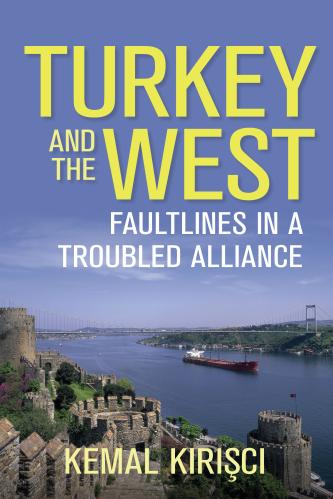
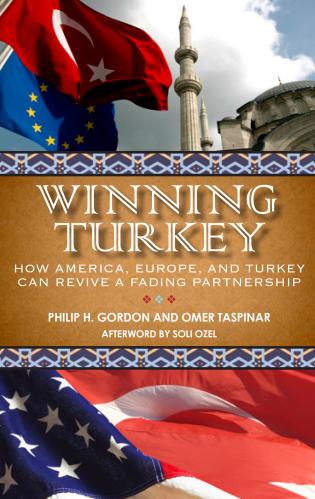
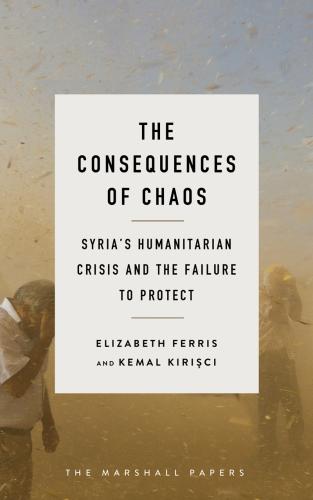

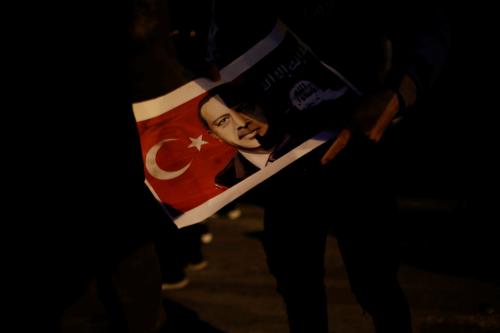
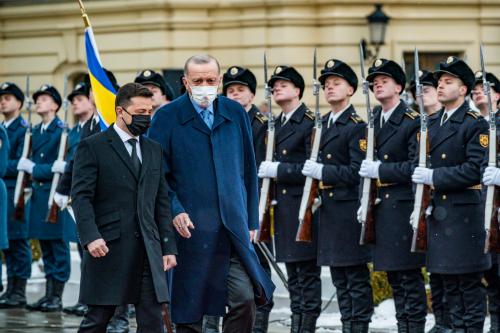

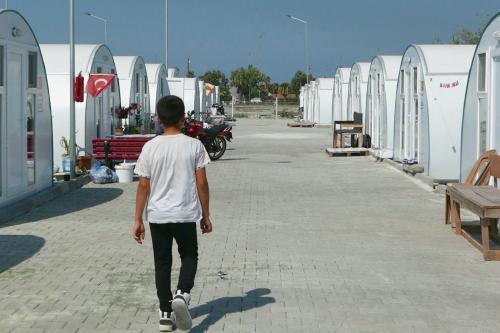
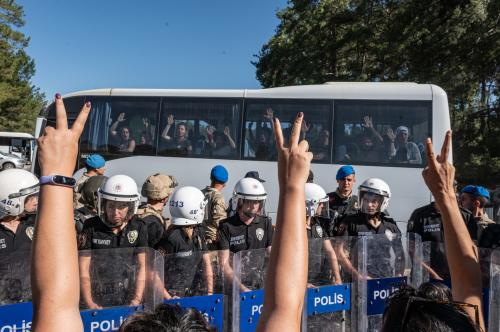

Commentary
To Erdoğan and Trump: Don’t forget the Syrian refugees
May 14, 2017